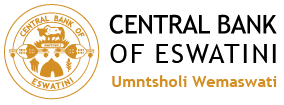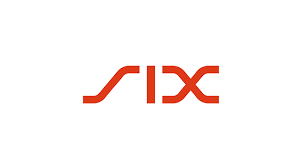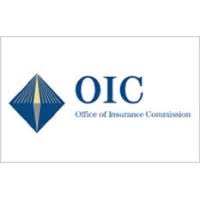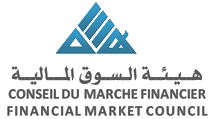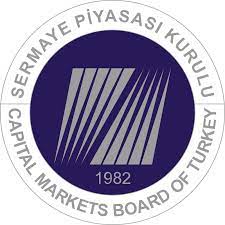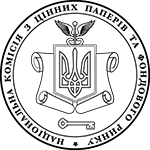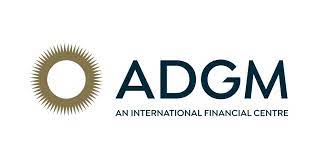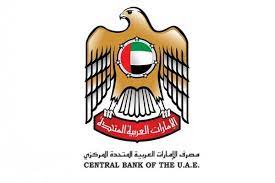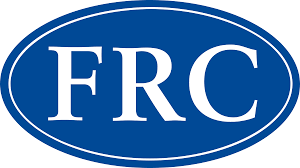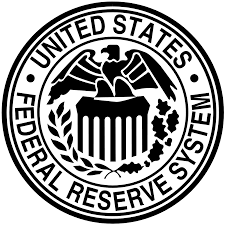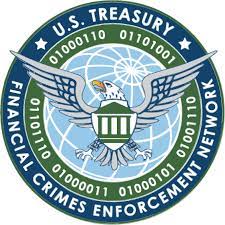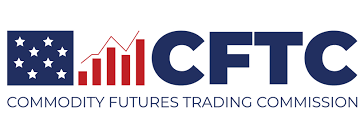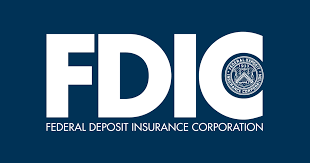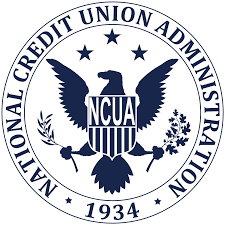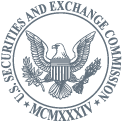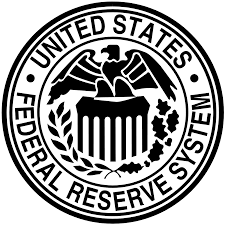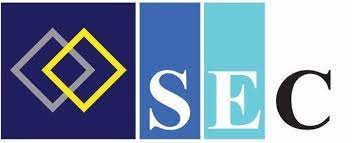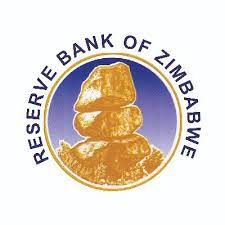Da Afghanistan Bank (DAB)
Albanian Financial Supervisory Authority (FSA)
The AFSA is solely Responsible for the maintenance and supervision of all major financial activities going on in Albania. The reports from the AFSA are directly submitted to the Albanian Government. The AFSA majorly concerns about the safety and security of the rights of their customers.
Commission d’Organisation et de Surveillance des Opérations de Bourse (COSOB)
The Commission for the Organization and Monitoring of Stock Exchange Operations (COSOB) has a mission to organize and monitor the market of mobile values in particular: - the protection of investors in mobile values; - the proper functioning and transparency of the mobile value market.
Andorran Financial Authority (AFA)
The AFA is in charge of the management of deposits constituted by natural or legal persons, preceding the creation of an operating entity in the Andorran financial system.
Anguilla Financial Services Commission
To enhance the safety, stability and integrity of Anguilla's financial system and contribute to Anguilla being a premier financial centre, through appropriate regulation and legislation, judicious licensing, comprehensive monitoring and good governance.
Financial Services Regulatory Commission
The Financial Services Regulatory Commission (FSRC) of Antigua and Barbuda is responsible for the oversight and regulation of the financial services industry within Antigua and Barbuda.
Comisión Nacional de Valores (CNV)
Description: The National Securities Commission (CNV) is the official body responsible for the promotion, supervision and control of equity markets in Argentina. The company issues trade laws, clearing houses and brokers.
Central Bank of Armenia (CBA)
The Central Bank of Armenia (the CBA) is a legal entity empowered with state functions. The primary goal of the CBA is prices stability, pursuant to the Constitution of Armenia, Article 200.2 and Law on Central Bank of Armenia, Article 4.
Australian Takeovers Panel
The Panel is a peer review body that regulates corporate control transactions in widely held Australian entities, primarily by the efficient, effective and speedy resolution of takeover disputes.
Australian Prudential Regulation Authority (APRA)
The Australian Prudential Regulation Authority (APRA) is an independent statutory authority that supervises institutions across banking, insurance and superannuation and promotes financial system stability in Australia.
Australian Securities and Investments Commission (ASIC)
The ASIC aims to promote fair and efficient financial markets, characterised by integrity and transparency, and to support confident and informed participation by investors and financial consumers.
Australian Transaction Reports and Analysis Centre (AUSTRAC)
AUSTRAC is responsible for preventing, detecting and responding to criminal abuse of the financial system to protect the community from serious and organised crime.
Foreign Investments Review Board (FIRB)
The Foreign Investment Review Board (the Board) is a non statutory body established in 1976 to advise the Treasurer and the Government on Australia's Foreign Investment Policy (the Policy) and its administration. The Board's functions are advisory only.
Oesterreichische Nationalbank
The Oesterreichische Nationalbank is the central bank of Austria and, as such, an integral part of both the European System of Central Banks and the Eurozone. In the public interest, the Oesterreichische Nationalbank contributes to monetary and economic policy decision-making in Austria and in the Euro area.
Financial Market Authority (FMA, Finanzmarktaufsichtsbehörde in German)
FMA monitors and controls the individual financial institutions and players (micro supervision) and imposes sanction against the responsible persons of Speedinvest GmbH for breach of Venture Capital Funds Regulation.
Austrian Takeover Commission (Übernahmekommission in German)
The Takeover Commission is an independent authority established within the organisational framework of Wiener Börse AG, the exchange operating company of the Vienna Stock Exchange. The Takeover Commission consists of twelve part-time members and an administrative office. Its primary responsibility is to monitor the entire bidding process and to assess whether or not a mandatory bid is required.
Financial Market Supervisory Authority of Azerbaijan ;
Financial Market Supervisory Authority of the Republic of Azerbaijan was founded as a public legal entity according to the Presidential Decree dated February 3, 2016 in order to improve licensing, regulation and supervision of securities market, investment funds, insurance, credit organizations and payment systems.
Securities Commission of the Bahamas
The Securities Commission of The Bahamas is responsible for the administration of the Securities Industry Act, 2011, the purpose of which is to: provide protection to investors from unfair, improper or fraudulent practices. foster fair and efficient capital markets and confidence in the capital markets in The Bahamas.
Central Bank of The Bahamas
Central Bank of The Bahamas. To foster an environment of monetary stability conducive to economic development, and to ensure a stable and sound financial system through the highest standards of integrity and leadership.
Central Bank of Bahrain
The CBB is responsible for maintaining monetary and financial stability in the Kingdom of Bahrain. It is also the single integrated regulator of Bahrain's financial industry.
Securities and Exchange Commission (Bangladesh)
Monitoring and regulating all authorized self-regulatory organizations in the securities market. Prohibiting fraudulent and unfair trade practices relating to securities trading in any securities market. Promoting investors' education and providing training for intermediaries of the securities market.
Bangladesh Bank
The major functional areas include : Formulation and implementation of monetary and credit policies. Regulation and supervision of banks and non-bank financial institutions, promotion and development of domestic financial markets. Management of the country's international reserves.
Financial Intelligence Unit (Barbados)
To contain and control the incidence and effect of money laundering, the financing of terrorism, proliferation financing within Barbados and to assist in the global combative efforts through the receipt, collection and analysis and dissemination of financial intelligence.
Barbados Financial Services Commission
BFSC are responsible for supervising and regulating non-bank financial institutions in Barbados, particularly those entities licensed or registered under the following Acts of parliament..
Central Bank of Barbados
The Central Bank of Barbados has become the premier financial institution in the country and its main policy is to formulate, in association with Government, monetary and fiscal policies to assist with the country's economic development programme.
National Bank of the Republic of Belarus
To maintain price stability; to ensure stability of the Belarusian banking system; to secure efficient, reliable, and safe functioning of the payment system.
Financial Services and Markets Authority (FSMA – Autorité des services et marchés financiers/Authoriteit voor Financiële Diensten en Markten)
As a supervisory authority, the FSMA strives to ensure the honest and equitable treatment of financial consumers. It aims at the fair and orderly operation and the transparency of the financial markets by ensuring that listed companies provide correct and complete information. It promotes proper provision of financial services by verifying that financial institutions comply with rules of conduct, by supervising financial products, financial service providers and supplementary pensions, and by contributing to improving the education of financial consumers. In this way the FSMA seeks to ensure that the financial system deserves the trust of its users.
National Bank of Belgium (NBB – Banque Nationale de Belgique/Nationale Bank van België)
the management of foreign currency reserves. the collection, circulation and analysis of economic and financial information. the stability of the Belgian financial sector – see also CBFA. the role of financial ambassador to international economic institutions.
International Financial Services Commission
The Financial Services Commission (FSC) is the regulatory body for non-bank financial services in Belize, particularly for those services provided by entities licensed or registered under the Financial Services Commission Act, Cap. 272 Revised Edition 2020 and the Securities Industry Act, 2021 (SIA).
Bermuda Monetary Authority
The BMA supervises, regulates and inspects financial institutions operating in the jurisdiction.
Royal Monetary Authority of Bhutan (RMA)
Act as banker to the banks; Manage gold, foreign exchange and other international reserves of Bhutan; Make foreign exchange regulations; Issue licenses to financial institutions to carry on financial services; and.
Autoridad de Supervisión del Sistema Financiero (ASFI)
The ASFI (FINANCIAL SYSTEM SUPERVISION AUTHORITY) is the institution in charge of regulating and supervising the operation of Banking Entities, Cooperatives, Mutual Funds, Financial Funds, entities that operate in the Securities Sector and those that provide Financial Auxiliary Services
Securities Commission of the Federation of Bosnia and Herzegovina (Komisiji za vrijednosne papire Federacije Bosne i Hercegovina in Bosnian)
The SEC of Bosnia and Herzegovina purpose is encouraging the development of capital markets and protecting the interests of existing and future investors.
Republika Srpska Securities Commission for Republika Srpska
The Republic of Srpska Securities Commission (Serbian: Комисија за хартије од вриједности Републике Српске or Komisija za hartije od vrijednosti Republike Srpske) is a financial services regulator in Republika Srpska, Bosnia and Herzegovina. It is based in the city of Banja Luka. Republika Srpska is one of the two entities comprising Bosnia and Herzegovina, by the Dayton Peace Agreement. Entities are delegated various authorities, one being to regulate independently the establishment and development of Capital Markets. On the basis of this, in June 1998, the Republika Srpska National Assembly adopted the Law on Securities that regulates the issue and trade of securities, authorities and responsibilities of capital markets participants, as well as the protection of investors' interests on the securities market. This Law also regulates establishment of the Republika Srpska Securities Commission (Commission), determines its liabilities, authorities and method of work. The Commission is a permanent and independent legal entity, which through regulation, promotion and surveillance will attempt to attain its primary objectives of: - upporting the establishment and development of a securities market in the Republic Srpska, - the efficient functioning of a regulated, fair, open securities market in order to gain the confidence of all, institutions and market participants, - protection of investor's and other market participant's interests.
Bank of Botswana (BOB)
The Bank of Botswana, as the country's central bank is responsible for maintaining monetary and financial stability, reinforced by confidence in the national currency, sound banks and an effective payments system.
Non-Bank Financial Institutions Regulatory Authority (NBFIRA)
NBFIRA is responsible for licensing Virtual Asset Service Providers (VASPs) and issuers of initial token offerings. Being the regulatory authority, NBFIRA regulates, monitors and supervises the issuance of virtual assets and persons conducting virtual asset business in Botswana
Superintendência de Seguros Privados (SUSEP)
SUSEP - Superintendence of Private Insurance - is an autarchy linked to the Ministry of Finance, responsible for the control and inspection of the insurance, open private pension, capitalization and reinsurance markets in Brazil.
Comissão de Valores Mobiliários (CVM)
The mandates of the CVM are Market development, Efficiency and functioning of the market, Protection of investors, Access to appropriate information, Supervision and sanctions.
Banco Central do Brasil (BACEN)
In 1964, the Banking Law (No. 4,595) created the National Monetary Council (CMN) — as the highest macroeconomic and financial regulatory authority — and the Banco Central do Brasil (BCB). Under this institutional framework, BCB performs its functions as monetary, regulatory and supervisory authority in accordance to guidelines issued by the CMN. It is worthy to highlight that the BCB’s Governor has one of three votes in every deliberation of the CMN. Its purpose is to to ensure the stability of the currency purchasing power, to foster a sound, efficient and competitive financial system, and to promote the economic well-being of society.
British Virgin Islands Financial Services Commission
The BVI Financial Services Commission is an autonomous regulatory authority responsible for the regulation, supervision and inspection of all the British Virgin Islands financial services including insurance, banking, trustee business, company management, mutual funds business, the registration of companies, limited partnerships and intellectual property. It was established in 2001 pursuant to the Financial Services Commission Act, 2001. The commission now oversees all regulatory responsibilities previously handled by the government through its Financial Services Department; protecting the independence of financial services regulation and fulfilling international commitments to the prevention of international white collar crime while safeguarding the privacy and confidentiality of legitimate business transactions.[3] The commission also has new responsibilities including promoting public understanding of the financial system and its products, policing the perimeter of regulated activity, reducing financial crime and preventing market abuse.
Brunei International Financial Center of the Ministry of Finance
The ITBOR has been formed specifically to serve the interest of Companies that are subjected to corporate tax under the Companies Act with the aim to facilitate the administration and operation of taxation in Brunei Darussalam.
Financial Supervision Commission (Bulgaria) (FSC)
The Financial Supervision Commission (FSC) is charged with maintaining stability and transparency through policy development, promotion, and regulation. This site contains information on the FSC's projects and functions as well as relevant information in the financial services industry.
National Bank of Cambodia (NBC)
NBC is the nation's central bank, whose mission is to determine and direct the monetary policy in order to maintain price stability within the framework of economic and financial policy in Cambodia
Canadian Securities Administrators (CSA)
Securities regulators from each of the 10 provinces and 3 territories in Canada have teamed up to form the Canadian Securities Administrators (CSA). The CSA protects Canadian investors from unfair, improper, or fraudulent practices and fosters fair and efficient capital markets.
Financial Institutions Commission – Province of British Columbia
BC Financial Services Authority (BCFSA) regulates credit unions, trust companies, insurance companies, pension plans, mortgage brokers and real estate professionals, ensuring financial services transactions are protected, for the prosperity of consumers and the province of B.C.
Autorité des marchés financiers – Québec
Supervise the Québec financial sector in such a way as to promote its proper functioning and protect consumers of financial products and services.
British Columbia Securities Commission (BCSC)
The British Columbia Securities Commission’s mission is to protect and promote the public interest by fostering a securities market that is fair and warrants public confidence, and a dynamic and competitive securities industry that provides investment opportunities and access to capital.
Financial Services Commission of Ontario
We protect the rights of consumers by promoting high standards of business conduct and transparency within the financial services we regulate. Information provided about these sectors will help you understand your rights, give you confidence in the choices you make and the process for filing complaints. Effective June 8, 2019, the Financial Services Regulatory Authority (FSRA) will assume the regulatory functions of the Financial Services Commission of Ontario (FSCO) and the Deposit Insurance Corporation of Ontario (DICO). FSRA is in the process of moving content from this website to www.fsrao.ca. Visit www.fsrao.ca for updates.
Office of the Superintendent of Financial Institutions (OSFI)
The Office of the Superintendent of Financial Institutions (OSFI) is an independent federal government agency that regulates and supervises more than 400 federally regulated financial institutions and 1,200 pension plans to determine whether they are in sound financial condition and meeting their requirements
Ontario Securities Commission (OSC)
The Ontario Securities Commission works to: protect investors from unfair, improper or fraudulent practices foster fair, efficient and competitive capital markets, and confidence in capital markets foster capital formation contribute to the stability of Ontario’s financial system and the reduction of systemic risk As a regulator, the OSC does not normally recover money for investors.
Financial Transactions and Reports Analysis Centre of Canada (FINTRAC)
FINTRAC's role is to provide CSIS with financial intelligence to assist that agency in fulfilling its mandate of investigating threats to the security of Canada.
Mutual Fund Dealers Association (MFDA)
As an SRO, the MFDA is responsible for regulating the operations, standards of practice and business conduct of its Members and their representatives with a view to enhancing investor protection and strengthening public confidence in the Canadian mutual fund industry.
Canada Deposit Insurance Corporation
The Canadian Deposit Insurance Corporation (CDIC) is an independent crown corporation established by the Canadian federal government. The CDIC was created by Parliament in 1967 to insure bank deposits of up to $100,000 per insured category as long as they are held in member Canadian banks.
Alberta Securities Commission
The mission of ASC is to foster a fair and efficient capital market in Alberta and to protect investors. Their aim is to be a practical, intelligent, best-in-class regulator and strive to protect investors from improper, misleading or fraudulent practices.
Investment Industry Regulatory Organization of Canada (IIROC)
IIROC is committed to protecting investors, protecting market integrity, and building Canadians' trust in financial regulation and the people managing their investments.
Cayman Islands Monetary Authority
The CIMA manages the Cayman Islands currency, regulates and supervises financial services, provides assistance to overseas regulatory authorities and advises the Cayman Islands government on financial-services regulatory matters.
La Comisión para el Mercado Financiero
The Financial Market Commission (CMF) is a public institution of a technical nature. Its main objectives include safeguarding the correct functioning, development, and stability of the financial market, facilitating the participation of market agents, and promoting the protection of public trust. To do so, it maintains a general, systemic vision of the market which considers the interests of investors, depositors, and policyholders, as well as protecting the public interest.
Superintendencia de Valores y Seguros (INACTIVE)
The Superintendence of Securities and Insurance (SVS) was an autonomous Chilean institution, with legal personality and its own assets, which was in charge of supervising the persons who issued or intermediated publicly offered securities, stock exchanges and stock market operations. the associations of securities agents and the operations on securities that they carry out, the mutual funds and the companies that manage them, the corporations and those limited by shares that the law subject to their surveillance, the companies dedicated to the trade of insuring and reinsure, whatever its nature and their businesses, and any other entity or natural or legal person entrusted to it by law.2 It was replaced by the Commission for the Financial Market.
China Insurance Regulatory Commission (CIRC)
CIRC is responsible for supervision of insurance, reinsurance, insurance asset management companies (IAMCs), insurance brokers and agents in China. CIRC is financed by levies on insurers' capital and net retained premiums.
China Banking Regulatory Commission (CBRC)
To regulate and supervise banking and insurance institutions in China and their market conduct;to maintain fair competition in the banking and insurance sectors;and to protect the legitimate rights and interests of stakeholders including depositors and insurance policyholders.
China Securities Regulatory Commission (CSRC)
The China Securities Regulatory Commission (CSRC) is China's regulatory body that oversees the securities industry in the country. The U.S. Securities and Exchange Commission (SEC) is the equivalent of the CSRC. The CSRC reports directly to China's State Council, the main administrative body of China.
Superintendencia Financiera de Colombia
The Superintendencia Financiera de Colombia (SFC) is the Colombian government agency responsible for overseeing financial regulation and market systems in order to preserve stability, security and confidence, and to promote, organize and develop the securities market. It is also mandated to provide investor protection for depositors and policyholders.
National Directorate of Taxes and Customs (DIAN)
The Tax and Customs National Authority aims to support the fiscal security of the Colombian state and the protection of national economic order, by the administration and control of: Tax, customs and exchange obligations.
Central Bank of Congo
The Central Bank of Congo works to maintain a stable monetary system by monitoring and creating credit policy. The site includes current events of the bank, publications, and information on currency. The site also provides statistics and market information.
Superintendencia General de Valores
The General Superintendency of Securities (Sugeval) is the state institution that regulates the securities market in Costa Rica. It is in charge of ensuring its transparency, the correct formation of prices in it, the protection of investors and the dissemination of the necessary information to ensure the achievement of these goals.
Superintendencia General de Seguros (Costa Rica)
SUGESE seeks to facilitate the development and operation of the Costa Rican insurance market, in a transparent and efficient manner. The Superintendence is the entity responsible for authorizing, regulating and supervising individuals or legal entities that intervene in acts or contracts related to insurance, reinsurance, public offering and conducting insurance business.
Croatian Financial Services Supervisory Agency
The Croatian Financial Services Supervisory Agency (Hanfa) is a supervisory body whose scope of activities and competence cover the supervision of financial markets, financial services and supervised entities providing those services.
Cyprus Securities and Exchange Commission (CYSEC)
The Cyprus Securities and Exchange Commission (CySEC) is the independent public supervisory Authority responsible for the supervision of the investment services market, transactions in transferable securities carried out in the Republic of Cyprus and the collective investment and asset management sector. It also supervises the firms offering administrative services which do not fall under the supervision of ICPAC and the Cyprus Bar Association. Their Mission is to exercise effective supervision to ensure investor protection and the healthy development of the securities market
Central Bank of Cyprus
Promoting, regulating and overseeing the smooth operation of payment and settlement systems.
Cyprus Insurance Companies Control Service (ICCS)
The Superintendent of Insurance is the competent authority of the insurance sector in the Republic of Cyprus and exercises all the powers granted to him by the Law on Insurance and Reinsurance Services and Other Related Issues of 2016 [Law 38 (I) 2016] and by the relevant Regulations, as amended at times, for the purpose of protecting the policyholders and the insurance beneficiaries. The said legislation regulates the issues relating to the taking-up, pursuit and supervision of insurance and reinsurance services and the taking-up, pursuit and supervision of insurance and reinsurance products distribution business. The Superintendent of Insurance is the head of the Insurance Companies Control Service (the Service) which at all times acts on behalf of and by order of the Superintendent of Insurance.
Czech National Bank
The CNB is responsible for the formulation and conduct of monetary policy. It was established in the Constitution (adopted on December 16, 1992) as the central bank and its specific functions are defined in the Act on the Czech National Bank of December 17, 1992 (No. 6/1993), henceforth referred to as the CNB Act.
Banque Centrale des Etats de l’Afrique de l’Ouest
The BCEAO has the exclusive right to issue currency throughout the member States of the West African Monetary Union. It issues banknotes and coins that are legal tender and redeemable throughout the member States of the Union.
Financial Supervisory Authority (Denmark), (Finanstilsynet in Danish)
The primary task of the Danish FSA is supervision of financial undertakings – banks, mortgage-credit institutions, pension and insurance companies.
Financial Service Unit of the Commonwealth of Dominica
The FSU is under the auspices of the Ministry of Finance and composed of experienced professionals, the FSU supervises and regulates all the financial sector within the island with the exception of Commercial Banks and Securities Business.
Superintendencia de Bancos de la Republica Dominicana
Contribute to the welfare of the country, monitoring the solvency, liquidity and management of entities and the stability of the financial system; as well as protecting the rights of users of financial services.
Banco Central de la Republica Dominica
The Central Bank of the Dominican Republic (Spanish: Banco Central de la República Dominicana, BCRD) was established by the Monetary and Banking Law of 1947 as the central bank of the Dominican Republic, responsible for regulating the country's monetary and banking system.
Superintendencia del Mercado de Valores de la Republica Dominicana
According to the law, the objective of the SIMV is to regulate and promote the securities market, seeking an organized, efficient and transparent market that contributes to the economic and social development of the country.
Superintendencia de Bancos
To be a technical and autonomous entity that supervises and controls the entities of the public and private sectors of the financial system, and of the national social security system, to preserve its security, stability, solidity and transparency; and thus protect the savings of the public, pensioners, affiliates and taxpayers and; the general interest of citizens who access and use financial products and services, as well as quality benefits.
Financial Regulatory Authority
FRA is responsible for supervising and regulating non-banking financial markets and instruments, including Capital Market, Futures Exchanges, Insurance Activities, Mortgage Finance, Financial Leasing, Factoring, and Securitization.
Superintendencia del Sistema Financiero
NA
Bank of Estonia (Eesti Pank in Estonian)
The primary objective of Eesti Pank is to contribute to price stability within the euro area. A stable price level is maintained with the help of the single monetary policy, which is formulated by all the Eurosystem members, including Eesti Pank.
Financial Supervisory Authority of Estonia (Finantsinspektsioon in Estonian)
Estonian Financial Supervision and Resolution Authority Finantsinspektsioon (Estonian Financial Supervision and Resolution Authority) is a financial supervision and crisis resolution authority with autonomous responsibilities and budget that works on behalf of the state of Estonia and is independent in its decision-making. Finantsinspektsioon carries out state supervision over banks, insurance companies, insurance intermediaries, investment firms, fund managers, investment and pension funds, payment institutions, e-money institutions, creditors and credit intermediaries, and the securities market that all operate under activity licences granted by Finantsinspektsioon. Finantsinspektsioon is part of the European Single Supervisory Mechanism (SSM), which has carried out capital supervision for the most important banks and banking groups in Europe since November 2014. Finantsinspektsioon is also part of the European Single Resolution Mechanism (SRM) and the Single Resolution Board. Since the Single Resolution Board (SRB) was set up in Europe in 2015, Finantsinspektsioon has also had responsibility for crisis resolution work as the supervisory institution. Supervision over branches of banks, insurance companies and investment funds operating in Estonia is exercised by the supervision authority of the country of origin of the branch.
European Insurance and Occupational Pensions Authority (EIOPA)
The mission of EIOPA is to protect the public interest. They do this by helping ensure the short-, medium- and long-term stability and effectiveness of the financial system for the EU's economy, businesses and people.
European Central Bank (ECB)
The European Central Bank (ECB) manages the euro and frames and implements EU economic & monetary policy. Its main aim is to keep prices stable, thereby supporting economic growth and job creation.
European Systemic Risk Board (ESRB)
The European Systemic Risk Board (ESRB) was established in 2010 to oversee the financial system of the European Union (EU) and prevent and mitigate systemic risk.
European Securities and Markets Authority (ESMA)
The European Securities and Markets Authority (ESMA) is an independent EU authority whose purpose is to improve investor protection and promote stable, orderly financial markets.
European Banking Authority (EBA)
Overview. The EBA is the EU agency tasked with implementing a standard set of rules to regulate and supervise banking across all EU countries. Its aim is to create an efficient, transparent and stable single market in EU banking products.
Insurance Authority of the Faroe Islands (Tryggingareftirlitið in Faroese) (For Insurance, Pension and mortgages all other finance is regulated by Financial Supervisory Authority (Denmark))
The Insurance Authority is the national financial supervisory authority of the Faroe Islands with jurisdiction over Insurance companies, Pension Funds, and one Morgage Credit Institution. The remaining areas of the financial supervision are under the Financial Supervisory Authority of Denmark- cf. www.finanstilsynet.dk The Insurance Authority is governed by a Council/Board and a Secretariat.
Financial Supervisory Authority, (FIN-FSA Finanssivalvonta in Finnish)
The Finnish Financial Supervisory Authority (FIN-FSA; in Finnish: Finanssivalvonta [Fiva]; in Swedish: Finansinspektionen [FI]) is the financial regulatory authority of the Finnish government, responsible for the regulation of financial markets in Finland.
Autorité des marchés financiers (France) (AMF)
The objective is to protect savings and more generally to regulate financial markets such as the Paris Stock Exchange. It collects the proceeds from fees and contributions paid by the players subject to its control, which allows it to have financial autonomy.
French Prudential Supervision and Resolution Authority (Autorité de contrôle prudentiel et de résolution – ACPR)
The Autorité de contrôle prudentiel et de résolution is an administrative authority attached to the Banque de France responsible for carrying out the supervision of the banking and insurance sector in France. The Prudential supervision consists in the monitoring the financial soundness of institutions, in particular their capital base, liquidity and risk management arrangements in accordance with the regulations in force. Resolution consists in the implementation of crisis prevention and resolution measures as alternatives to liquidation, in the fields of banking and insurance.
Registre unique des Intermediaires en Assurance, Banque et Finance (France) (ORIAS)
The Organization for the Single Register of Insurance, Banking and Finance Intermediaries (ORIAS) is an association under the law of 1901, under the supervision of the General Directorate of the Treasury. Created in 2007, its purpose is to approve insurance intermediaries, in accordance with Directive 2002/92/EC of the European Parliament.
National Bank of Georgia
The National Bank of Georgia (NBG) is the central bank of Georgia. Its status is defined by the Constitution of Georgia. The main objective of the National Bank is to ensure price stability. Georgia's first central bank was established in 1919.
Federal Financial Supervisory Authority (BaFin – Bundesanstalt für Finanzdienstleistungsaufsicht)
BaFin operates in the public interest. Its primary objective is to ensure the proper functioning, stability and integrity of the German financial system. Bank customers, insurance policyholders and investors ought to be able to trust the financial system.
Securities and Exchange Commission (Ghana) (SEC)
The Securities and Exchange Commission ('the Commission') is established by the Securities Industry Act, 2016 (Act 929) ('the Act') with the object to regulate and promote the growth and development of an efficient, fair and transparent securities market in which investors and the integrity of the market are protected
Bank of Ghana (BOG)
The Bank of Ghana supervises banks and non-bank financial institutions in accordance with relevant banking and financial statutes and issues prudential guidelines, directives and notices, to ensure the smooth operation of the financial sector.
Gibraltar Financial Services Commission (GFSC)
The Gibraltar Financial Services Commission “GFSC” regulates the financial services industry in Gibraltar. Their aim is to protect consumers, enhance the reputation of Gibraltar as a quality financial services centre and promote good business
Hellenic Capital Market Commission
The Hellenic Capital Market Commission (HCMC) was established as a legal entity by Law 1969/91 and organized by Law 2324/1995, aiming to ensure the protection and the orderly and efficient operation of the capital market, which is crucial for the growth of the national economy.
Grenada International Financial Services Authority (GIFSA)
The Grenada International Financial Services Authority (GIFSA), a statutory body, was established in 2000 to strengthen the regulation of the international financial services sector.
Superintendencia de Bancos (SB)
Promote stability and confidence in the supervised financial system
Guernsey Financial Services Commission
The Commission supervises and regulates over 2,000 licensees from within the banking, fiduciary, insurance and investment sectors. They do this in accordance with standards set by international bodies such as the Basel Committee for Banking Supervisors, the International Association of Insurance Supervisors, the International Organisation of Securities Commissions and the Financial Action Task Force on Money Laundering.
National Banks and Securities Commission (Comisión Nacional de Bancos y Seguros in Spanish)
The Guernsey Financial Services Commission is the regulatory body for the finance industry in the Bailiwick of Guernsey. They seek to secure good regulatory outcomes with integrity, proportionality and professional excellence, thereby generating confidence in the Bailiwick as a jurisdiction.
Hong Kong Insurance Authority (IA)
With effect from 23 September 2019, the Insurance Authority (“IA”) is the sole regulator to license and supervise all insurance intermediaries in Hong Kong. The IA is responsible for supervising insurance intermediaries’ compliance with the provisions of Insurance Ordinance (Cap.41) (“IO”), and the relevant regulations, rules, codes and guidelines issued by the IA. The IA is also responsible for promoting and encouraging proper standards of conduct of insurance intermediaries, and has regulatory powers in relation to licensing, inspection, investigation and disciplinary sanctions.
Hong Kong Monetary Authority (HKMA)
promoting the stability and integrity of the financial system, including the banking system; helping to maintain Hong Kong's status as an international financial centre, including the maintenance and development of Hong Kong's financial infrastructure; and. managing the Exchange Fund.
Hong Kong Securities and Futures Commission (SFC)
As a financial regulator in an international financial centre, the SFC strives to strengthen and protect the integrity and soundness of Hong Kong's securities and futures markets for the benefit of investors and the industry.
Hong Kong Mandatory Provident Fund Schemes Authority (MPFA)
The mandatory provident fund, or MPF, in Hong Kong is a structured savings scheme designed to provide retirement savings for employed and self-employed Hong Kong citizens. In most cases, participation is mandatory for employers and employees.
Hungarian National Bank (Hungarian: Magyar Nemzeti Bank (MNB))
The primary objective of Magyar Nemzeti Bank (the central bank of Hungary) is to achieve and maintain price stability. Without prejudice to its primary objective, the Magyar Nemzeti Bank supports the economic policy of the Government, using the monetary policy instruments at its disposal.
Central Bank of Iceland
The Central Bank of Iceland is an independent institution owned by the State and operating under the auspices of the Prime Minister. Its objective is to promote price stability, financial stability, and sound and secure financial activities.
Insurance Regulatory and Development Authority of India (IRDAI)
Insurance Regulatory and Development Authority (IRDA) Act, 1999 spells out the Mission of IRDAI as: “... to protect the interests of the policyholders, to regulate, promote and ensure orderly growth of the insurance industry and for matters connected therewith or incidental thereto
Pension Fund Regulatory and Development Authority (PFRDA)
The Pension Fund Regulatory & Development Authority Act was passed on 19th September, 2013 and the same was notified on 1st February, 2014. PFRDA is regulating NPS, subscribed by employees of Govt. of India, State Governments and by employees of private institutions/organizations & unorganized sectors
Insolvency and Bankruptcy Board of India (IBBI)
It writes and enforces rules for processes, namely, corporate insolvency resolution, corporate liquidation, individual insolvency resolution and individual bankruptcy under the Code
Reserve Bank of India (RBI)
To promote the integrity, efficiency, inclusiveness and competitiveness of the financial and payments system; To ensure efficient management of currency as well as banking services to the Government and banks; and. To support the balanced, equitable and sustainable economic development of the country.
Securities and Exchange Board of India (SEBI)
The main duty of SEBI is to regulate the Indian Capital markets. It monitors and regulates the stock market and protects the interests of the investors by enforcing certain rules and regulation
Bank Indonesia
In accordance with those prevailing laws and regulations, Bank Indonesia is mandated to perform macroprudential regulation and supervision of the financial system, encompassing financial institutions, non-financial corporations, households, financial markets and financial infrastructure, which interact mutually in ...
Financial Services Authority (Indonesia) (Indonesian: Otoritas Jasa Keuangan) (OJK)
To realize the convening of all activities in financial sector so that they are managed regularly, fairly, transparently, and accountably. To realize a sustainable and stable financial system. To protect the interests of consumers and public
Central Bank of Iran
CBI is tasked with maintaining the value of Iranian rial and supervision of banks and credit institutions. It acts as custodian of the National Jewels, as well as foreign exchange and gold reserves of Iran.
Securities and Exchange Organization of Iran
In accordance with those prevailing laws and regulations, Bank Indonesia is mandated to perform macroprudential regulation and supervision of the financial system, encompassing financial institutions, non-financial corporations, households, financial markets and financial infrastructure, which interact mutually in
Iraq Securities Commission (ISC)
Iraq Securities Commission, (ISC) is an independent public commission that oversees the activities of licensed securities markets, one of which is the Iraq Stock Exchange.
Central Bank of Ireland
The Central Bank of Ireland serves the public interest by safeguarding monetary and financial stability and by working to ensure that the financial system operates in the best interests of consumers and the wider economy
Irish Takeover Panel
The Irish Takeover Panel is the statutory body responsible for monitoring and supervising takeovers and other relevant transactions in relevant companies in Ireland.
Isle of Man Financial Services Authority
securing an appropriate degree of protection for policyholders, members of retirement benefits schemes and the customers of persons carrying on a regulated activity the reduction of financial crime the maintenance of confidence in the Island’s financial services, insurance and pensions industries through effective regulation, thereby supporting the Island’s economy and its development as an international financial centre.
Israel Securities Authority (ISA)
The Israel Securities Authority is responsible for safeguarding the interests of the public investing in securities, regulating and supervising the activity of the mutual funds sector, monitoring reports of relevant corporations, supervising proper management and more.
Commissione Nazionale per le Società e la Borsa (CONSOB)
The National Commission for Companies and the Stock Exchange (CONSOB) is the public authority responsible for regulating the Italian financial markets.
Institute for the Supervision of Insurance (ISVAP)
The Institute for the Supervision of Insurance (in Italian Istituto per la vigilanza sulle assicurazioni also known as IVASS) is the Italian insurance supervisory authority, an independent authority responsible for supervising and regulating all insurance business in Italy.
Bank of Jamaica
oversight of Jamaica’s payment, clearing and settlement systems and the foreign exchange market; the issue and redemption of currency; the provision of banking services to the Government and commercial banks as well as fiscal agency services to the Government; and the management of the external reserves of Jamaica.
Financial Services Commission (Jamaica)
The FSC was created pursuant to the Financial Services Commission Act to oversee the regulation of Jamaica's insurance, pension and securities industries. The FSC, a self-financing regulatory body, was given wide ranging powers to supervise, investigate and sanction entities falling under its jurisdiction.
Financial Services Agency
The FSA is responsible for ensuring stability of Japan's financial system, protection of depositors, insurance policyholders and securities investors, and smooth finance through such measures as planning and policymaking concerning the financial system, inspection and supervision of private sector financial
Securities and Exchange Surveillance Commission (SESC)
The SESC conducts investigations on market misconduct such as possible violation of the spreading of rumors regarding stock markets, fraudulent means, market manipulation and insider trading.
Jersey Financial Services Commission
JFSC are responsible for regulating, developing and supervising the Island's financial services industry. They aim to deliver balanced, progressive, risk-based financial regulation, built on insight, integrity and expertise
Jordan Securities Commission
To regulate, monitor & develop Jordan capital market in issues related to disclosure, financial services activities & dealing in securities, in order to enhance the trust in the national economy, encourage investment & protect investors. As well as, upgrade legislations & technical developments continuously & according to recent standards & international best practices”.
Agency of the Republic of Kazakhstan on Regulation and Supervision of Financial Market and Financial Organizations (Агентство Республики Казахстан по регулированию и надзору финансового рынка и финансовых организаций in Kazakh )
The Agency is a state body, which provides a sufficient level of protection of the rights and legitimate interests of consumers of financial services. It also contributes to the stability of the financial system and the development of the financial market, carries out state regulation, control and supervision of the financial market and financial organizations, as well as other people within their competence. The Agency for Regulation and Development of the Financial Market of the Republic of Kazakhstan is defined as the assignee of the rights and obligations of the NBK in accordance with the transferred functions and powers.
Committee for the Control and Supervision of the Financial Market and Financial Organizations of the National Bank of the Republic of Kazakhstan
The National Bank is the central bank of the Republic of Kazakhstan. The objective of the NBK is to ensure price stability in Kazakhstan.
Astana Financial Services Authority
AFSA's purpose is to facilitate business by maintaining the safety and robustness of the AIFC financial system and to ensure that financial markets in the AIFC are fair, efficient and transparent.
Capital Markets Authority (Kenya)
It is charged with the prime responsibility of both regulating and developing an orderly, fair and efficient capital markets in Kenya with the view to promoting market integrity and investor confidence.
Financial Services Commission (FSC)
It makes financial policies, and directs the Financial Supervisory Service.
Financial Supervisory Service (FSS)
The FSS conducts prudential supervision of banks, nonbank financial companies, financial investment services providers, and insurance companies in order to ensure they comply with certain safety and soundness guidelines, standards, requirements, and safeguards. In addition, the FSS performs capital market supervision, consumer protection, and other supervision and enforcement activities as delegated or charged by the FSC.
Central Bank of Kuwait (CBK) (بنك الكويت المركزي in Arabic)
issue the national currency on behalf of the State. maintain the relative stability of the Kuwaiti Dinar, and secure its free convertibility into foreign currencies. to direct the credit policy with the aim to contribute to the social and economic progress and enhance the national income. to supervise the State's banking system. to serve as a banker to the government. to serve as a financial adviser to the government
Capital Markets Authority Kuwait (CMA) (هيئة أسواق المال – دولة الكويت in Arabic)
The CMA is committed to setting supervisory and controlling regulations which support an attractive and competitive investment environment in the State of Kuwait; based on the principles of fairness, transparency, and integrity according to the best international practice.
Financial and Capital Market Commission
The Financial and Capital Market Commission (FKTK) is in charge of the oversight and regulation of the Latvian financial services industry
Banking Control Commission of Lebanon (BCCL) and Insurance Control Commission (ICC)
The BCC's function is to supervise banks, financial institutions, money dealers, brokerage firms and leasing companies. The Insurance Control Commission (ICC) is the regulatory authority in charge of the supervision and control of the insurance sector in Lebanon.
Financial Market Authority (Liechtenstein) (FMA)
In accordance with its legislative mandate, the Liechtenstein Financial Market Authority (FMA) ensures the stability of the Liechtenstein financial market, the protection of clients, the prevention of abuses, and the implementation of and compliance with recognized international standards.
Bank of Lithuania
The Bank of Lithuania performs these primary functions: maintaining price stability, formulating and implementing the monetary policy, acting as an agent of the State Treasury.
Commissariat aux Assurances (CAA)
The Commissariat aux Assurances is the official Luxembourg regulatory authority responsible for the prudential supervision of the insurance sector.
Commission de Surveillance du Secteur Financier (CSSF)
The Commission de Surveillance du Secteur Financier (CSSF) is a public institution which supervises the professionals and products of the Luxembourg financial sector. It supervises, regulates, authorises, informs, and, where appropriate, carries out on-site inspections and issues sanctions.
Reserve Bank of Malawi (RBM)
To serve as the banker of the government. It issues legal tender currency as well as formulates the monetary policy of the country. This site gives general information about the bank, financial and economic information, and press releases.
Securities Commission Malaysia (SC)
Our mission is "to promote and maintain fair, efficient, secure and transparent securities and derivatives markets; and facilitate the orderly development of an innovative and competitive capital market".
Bank Negara Malaysia (BNM)
Bank Negara Malaysia, as the central bank for Malaysia, is mandated to promote monetary stability and financial stability conducive to the sustainable growth of the Malaysian economy.
Labuan Financial Services Authority (Labuan FSA)
Labuan FSA is formed to focus on business development and promotion, process application and supervise business and financial activities, develop national objectives, policies and set priorities, administer and enforce legislation, and incorporate/register Labuan offshore companies.
Central Bank of Malta
he main objective of the Central Bank of Malta as a Eurosystem member is to maintain price stability. To meet this objective, the Bank participates in the preparation and decision-making process of the Eurosystem's monetary policy.
Malta Financial Services Authority (MFSA)
The MFSA was set up through an Act of Parliament (Chapter 330 of the Laws of Malta) and its main functions include the protection of consumers, integrity of financial markets, financial stability and the supervision of all financial services activities.
Central Bank of Mauritania (BCM)
In addition to its core mission of price stability, the BCM's mission is to: 1. Development and implementation of the new general economic policies: Define and implement the monetary policy of the Islamic Republic of Mauritania; Participate in the definition of the exchange rate policy and ensure its implementation;
Financial Services Commission (FSC)
FSC aims to promote the development, fairness, efficiency and transparency of financial institutions and capital markets in Mauritius;suppress crime and malpractices so as to provide protection to members of the public investing in non-banking financial products; andensure the soundness and stability of the financial system in Mauritius.
Bank of Mauritius (BOM)
he main purpose of the Bank of Mauritius in that Act evolved to that of maintaining price stability and promoting the orderly and balanced economic development of Mauritius. The Bank of Mauritius is also responsible for the formulation and execution of monetary policy consistent with stable price conditions.
Comisión Nacional Bancaria y de Valores
The CNBV works in coordination with the institutions that make up the Mexican Financial System to take measures that help mitigate the economic effects related to the contingency derived from Covid-19
Comisión Nacional para la Protección y Defensa de los Usuarios de Servicios Financieros
Empower Users of financial services, through education and financial inclusion, enhance the protection and defense mechanisms of Users of financial services in their relationships with Financial Institutions, generating conditions of well-being for the user that allow substantive equity.
National Commission for Financial Markets
The core objectives of the National Commission for Financial Markets are: enhancing stability, transparency, security and efficiency of the non-banking financial sector, by adoption and maintenance of an adequate regulatory and supervisory framework of the participants on the financial market, to reduce systemic risks
Financial Regulatory Commission of Mongolia
The FRC reports its activity to the Mongolian Parliament and it strives to ensure the stability of financial market, regulate financial service institution, monitor the implementation of all relevant legislations, and protect the rights of investors and participants of the financial markets.
Central Bank of Mongolia
he main objective is to ensure the stability of the national currency – Togrog. The Bank of Mongolia is a legal entity established by the State and shall use the seal, stamp, and official form.
Insurance Supervision Agency
The Insurance Supervision Agency was set up as an independent regulatory authority that shall promote fair and efficient functioning of the insurance market with the objective of protection of the rights of the insurance policyholders and beneficiaries.
Montserrat Financial Services Commission
The Financial Services Commission Act, 2008 provides for the functions of the Commission, which is responsible for the licensing, supervision and regulation of financial service providers including domestic banks, international banks, trust companies, insurance companies, mutual funds, corporate service providers, company managers, international business companies, and money transmitter services.
Autorité Marocaine du Marché des Capitaux (AMMC) Ex Conseil déontologique des valeurs mobilières (CDVM)
Ensure the protection of savings invested in financial instruments; Ensure equal treatment of investors, transparency and integrity of the capital market and of the investors information; Ensure proper functioning of the capital market and ensure the implementation of legislative and regulatory provisions; Ensure control of the activity of different organizations and persons subject to its control; Ensure compliance with laws and regulations related to the fight against money laundering by individuals and institutions subject to its control; Contribute to promoting financial education for savers; Assist the government in the regulation of the capital market.
Nepal Rastra Bank (Central Bank of Nepal – Regulator and Supervisor of Banks and Financial Institutions)
Nepal Rasta Bank is a central bank of Nepal, which formulates monetary and foreign exchange policy and executes it for monetary and financial stability. It focuses on the stability of price, balance of payment, sustainable economic development, and maintaining stability and liquidity.
Beema Samiti (Regulator of Insurance Companies)
Beema Samiti's role is to facilitate the scheme and ensure its effective monitoring and evaluation. The policy can be bought using an online payment system. Beema Samiti has approved the insurers to receive payments through the online gateways approved by the Central Bank
Securities Board Nepal (SEBON)
SEBON was established by the Government of Nepal as an apex regulator of Securities Markets. Provide advice to Government on matters related with the development of capital market, Issue necessary securities regulations and directives.Register the securities of public companies. Regulate and systematize the issue, transfer, sale and exchange of registered securities.Issue license to operate stock exchange / stock broker, dealer, merchant banker and fund manager. Issue license to depository company, depository participant and credit rating agency. Register mutual funds, grant permission to operate collective investment schemes, and supervise and monitor them. Approve the bye-laws of stock exchange and depository company. Take necessary actions to prevent insider trading or any other offenses relating to transactions in securities in order to protect the interest of investors in securities. Establish coordination and exchange cooperation with appropriate agencies in order to supervise and regulate matters concerning securities or companies. Discharge or make arrangements for discharging such other functions as are necessary for the development of the capital market.
New Zealand – Financial Markets Authority (New Zealand)
The Financial Markets Authority regulates New Zealand's financial markets. We oversee and enforce securities, financial reporting, and company law as they apply to financial services and securities markets.
Netherlands Antilles – Bank of the Netherlands Antilles
The Bank of Netherlands Antilles situated in Curaçao became the Central Bank van Curaçao en Sint Maarten (CBCS), pursuing the objectives of (i) promoting the stability of the currency; (ii) promoting the health of the financial system; and (ii) promoting safe and efficient payment traffic
Netherlands Authority for the Financial Markets (AFM – Autoriteit Financiële Markten in Dutch)
AFM supervises the conduct of the entire financial market sector: savings, investment, insurance, loans, pensions, capital markets, asset management, accountancy and financial reporting. The AFM is committed to promoting fair and transparent financial markets. As an independent market conduct authority, we contribute to a sustainable financial system and prosperity in the Netherlands.
De Nederlandsche Bank (DNB)
As a part of the ESCB, DNB is co-responsible for the determination and implementation of the monetary policy for the eurozone, besides being a link in the international payment system. As an independent public body, DNB exercises prudential supervision of financial institutions.
National Insurance Commission (NAICOM) (Nigeria)
The National Insurance Commission (NAICOM) was established in 1997 by the National Insurance Commission Act 1997 with responsibility for ensuring the effective administration, supervision, regulation and control of insurance business in Nigeria and protection of insurance policyholders, beneficiaries and third parties ..
Central Bank of Nigeria (CBN)
To maintain the external reserves of the country, promote monetary stability and a sound financial environment, and act as a banker of last resort and financial adviser to the federal government.
Securities and Exchange Commission (Nigeria)
The function of the Securities and Exchange Commission is to regulate investment and securities business in Nigeria. Investment and securities business in Nigeria is carried out in the capital market. The capital market plays very important role in the development of any economy.
National Pension Commission (PENCOM) (Nigeria)
The Pension Reform Act 2004 established the National Pension Commission (PenCom) as the body to regulate, supervise and ensure the effective administration of pension matters in Nigeria. The functions of the Commission include: Regulation and supervision of the Scheme established under the Act.
National Bank of North Macedonia
he National Bank of the Republic of North Macedonia is in charge for supervision of banks, savings houses, e-money issuers and other financial institutions (cash exchange offices, fast money transfer offices and their sub-agents), including the imposition of measures and sanctions.
Securities and Exchange Commission of the Republic of North Macedonia (MSEC)
SEC's supervision authority legally prescribes SRO functions for the MSE (limited SRO) The SEC is the primary regulatory authority for the capital market in Macedonia. The SEC regulates, supervises and monitors enforcement of the Law on Capital Market, Takeover Law and Law on Investment Funds.
Financial Supervisory Authority of Norway (Finanstilsynet in Norwegian)
The Financial Supervisory Authority of Norway (FSA), known as Finanstilsynet, is the primary government agency responsible for the supervision of Norway's financial system and is tasked with oversight of all banks and financial institutions within the country
Capital Market Authority (Oman)
The CMA is responsible for regulating the financial service industry of Oman. The CMA was established on January 9, 1999. Its responsibilities include setting and policing financial rules and regulations and developing the capital markets, this includes regulating the Muscat Securities Market.
State Bank of Pakistan
SBP focuses on achieving monetary stability by controlling inflation close to its annual and medium-term targets set by the government. At the same time, SBP also aims to ensure financial stability, particularly the smooth functioning of the financial market and the payments system.
Superintendencia del Mercado de Valores
The Superintendence of the Stock Market of Panama , within the powers granted by the Single Text of Decree Law 1 of 1999, has as its objective the regulation, supervision and control of the stock market activities that take place in the Republic of Panama .
Bank of Papua New Guinea
Our Mission is to serve the people of Papua New Guinea by conducting effective monetary policy and maintaining a sound financial system. We will act at all times to promote macro-economic stability, provide a first class payments system, issuing of the national currency and help foster economic growth of our country.
Superintendencia del Mercado de Valores (SMV)
The Superintendence of the Securities Market (SMV) is a specialized technical body attached to the Ministry of Economy and Finance whose purpose is to ensure the protection of investors, the efficiency and transparency of the markets under its supervision, the correct formation of prices and the dissemination of all the information necessary for such purposes
Superintendencia de Banca, Seguros y AFP (SBS)
The Superintendency of Banking , Insurance and AFPs is the body in charge of regulating and supervisingFinancial Systems, Insurance and the Private Pension System, as well as to prevent and detect money laundering and financing of terrorism.
Bangko Sentral ng Pilipinas (Central Bank of the Philippines)
The primary objective of the Bangko Sentral is to maintain price stability conducive to a balanced and sustainable growth of the economy and employment. It shall also promote and maintain monetary stability and the convertibility of the peso.
Philippine Securities and Exchange Commission (SEC)
the national government regulatory agency charged with supervision over the corporate sector, the capital market participants, and the securities and investment instruments market, and the protection of the investing public.
Bureau of Treasury
the Bureau of the Treasury (BTr) is responsible for ensuring the sufficiency of Government financial resources including the active management and investment of excess funds.
Insurance Commission (Komisyon ng Seguro)
They are committed to implement prudent and progressive regulatory and supervisory policies at par with international standards.
Philippine Stock Exchange (PSE)
The Philippine Stock Exchange, Inc. (PSE) was incorporated on July 14, 1992 as a non-stock corporation with the primary objective of providing and maintaining a convenient and suitable market for the exchange, purchase and sale of all types of securities and other instruments
Philippine Deposit Insurance Corporation (PDIC)
PDIC is a government instrumentality created in 1963 by virtue of Republic Act 3591 to insure the deposits of all banks. PDIC exists to protect depositors by providing deposit insurance coverage for the depositing public and help promote financial stability.
Department of Finance (DOF)
The Department of Finance (DOF) is the government's steward of sound fiscal policy. It formulates revenue policies that will ensure funding of critical government programs that promote welfare among our people and accelerate economic growth and stability.
Polish Financial Supervision Authority (KNF)
The PFSA's supervision of the financial market aims at ensuring its proper functioning, stability, security and transparency, trust to the financial market, and protection of the participants' interests by providing reliable information on the market.
Portuguese Securities Market Commission (CMVM)
The Portuguese Securities Market Commission, also known as Comissao do Mercado de Valores Mobiliarios (CMVM) is responsible for the oversight and regulation of the Portuguese Financial Services Industry
Portuguese Insurance Regulator (ASF)
The 'Autoridade de Supervisão de Seguros e Fundos de Pensões (ASF)' is the Portuguese regulatory authority tasked with supervising the activities undertaken by insurance and reinsurance companies
Qatar Financial Markets Authority (QFMA)
Investor’s protection, maintenance of Qatari capital markets’ stability, integrity and transparency; and development of proficiency and knowledge to enhance the growth and diversity of the national economy.
Romanian Financial Supervisory Authority
Its mandate is to regulate, supervise, and control nonbank markets in Romania.
Central Bank of Russia (CBR)
the goals of the Bank of Russia are: to protect the ruble and ensure its stability; to develop and strengthen the banking system of the Russian Federation, to ensure stability of and develop the national payment
Financial Services Regulatory Commission
The Financial Services Regulatory Commission was established to regulate providers of financial services except for financial services covered by the Banking Act. It is the ultimate regulatory body for anti-money laundering for St. Kitts and Nevis.
Nevis Financial Regulatory Services Commission
The Financial Services Regulatory Commission was established to regulate providers of financial services except for financial services covered by the Banking Act. It is the ultimate regulatory body for anti-money laundering for St. Kitts and Nevis.
Financial Sector Supervision Unit
Financial sector regulatory responsibility for both the domestic (onshore) sector and the international (offshore) sector.
Financial Services Authority
Purpose os to develop, regulate and supervise the international and non-bank financial sector in accordance with international best practices so as to promote the safety, soundness and integrity of the sector, thereby enhancing the reputation of St. Vincent and the Grenadines as a secure and competitive financial centre.
Capital Market Association of the Eastern Caribbean (CMAEC)
The purpose of the CMAC is to represent to the Board the perspectives of professional capital market participants who are users of financial reporting information, such as analysts, investors and ratings agencies.
Central Bank of Samoa
The primary aim of the Central Bank's monetary policy is to achieve and maintain price stability as well as fostering and maintaining a stable financial system in order to achieve a sustainable real economic growth and a comfortable level of international reserves.
Central Bank of San Marino (BCSM)
The bank is in charge of financial supervision and regulation and supports San Marino's banking system, carries out treasury and overdue tax collection services on behalf of the State and gives financial and economic advice to the government.
Capital Market Authority (Saudi Arabia) (CMA) (هيئة السوق المالية in Arabic)
The financial market in Saudi Arabia arose with unofficial beginnings in the fifties, and the situation continued as such until the government laid down the basic regulations for the market in the eighties. In accordance with the "Capital Market Law" issued by Royal Decree No. (M/30) dated 2/6/1424 AH, the Capital Market Authority was established.
Saudi Arabian Monetary Agency (SAMA) (مؤسسة النقد العربي السعودي in Arabic)-
The objectives of the Saudi Arabian Monetary Agency shall be: (a) To issue and strengthen the Saudi currency and to stabilize its internal and external value; (b) To deal with the banking affairs of the Government; (c) To regulate commercial banks and exchange dealers.
Securities Commission (Serbia)
The Securities Commission safeguards orderly functioning of the capital market, enhancing investor protection and ensuring integrity, efficiency and transparency of the market.
Seychelles Financial Services Authority (SFSA)
Established under the Financial Services Authority Act, 2013, the Authority has the responsibility to license, regulate, enforce regulatory and compliance requirements, monitor and supervise the conduct of business in the non-bank financial services sector in Seychelles.
Central Bank of Seychelles
The primary objective of the Bank is to promote domestic price stability and other objectives of the Bank are as follows; to advise the Government on banking, monetary and financial matters, including the monetary implications of proposed fiscal, credit policies or operations of the Government; and to promote a sound financial system. The mission of the Bank corresponds to its core mandate, which is to contribute towards the sustainable economic growth and development of Seychelles through monetary policy and maintenance of a sound financial system. The vision of the Bank represents what it wants to become as an institution over time, that is, to be a model central bank in the region, delivering price stability and financial system soundness through professionals who are competent, committed and uphold high ethical standards, so as to support economic growth and development.
Monetary Authority of Singapore (MAS)
The Monetary Authority of Singapore (MAS) is Singapore's central bank and integrated financial regulator. MAS also works with the financial industry to develop Singapore as a dynamic international financial centre.
National Bank of Slovakia
The main task of the NBS is to maintain price stability. The NBS supervises all participants in the Slovak financial market and, acting together with the European Central Bank (ECB) within the single supervisory regime for banks, it contributes to the stability of the financial sector throughout the euro area.
Securities Market Agency (ATVP Agencija za Trg Vrednostnih Papirjev)
Its basic mission is to maintain a safe, transparent and efficient market in financial instruments. By exercising control over the brokerage companies, banks engaged in investment services and activities, management companies, investment funds, mutual pension funds, public companies, public-limited companies governed by the Takeovers Act and performing other regulatory tasks, it creates a level playing field for efficient operation of market in financial instruments.
South African Reserve Bank
The primary mandate of the South African Reserve Bank is to protect the value of the currency in the interest of balanced and sustainable economic growth. In addition to this, the SARB has a statutory mandate to enhance and protect financial stability in South Africa.
National Credit Regulator
The mission of the National Credit Regulator (NCR) is to support the social and economic advancement of South Africa by regulating for a fair and non-discriminatory market place for access to consumer credit; and promoting responsible credit granting and credit use, and effective redress.
Prudential Authority
The purpose of prudential regulation and supervision is to ensure that financial institutions and market infrastructures operating within the financial system are inherently safe and sound.
Financial Sector Conduct Authority
FSCA aims to enhance and support the efficiency and integrity of financial markets and to protect financial customers by promoting their fair treatment by financial institutions, as well as providing financial customers with financial education. The FSCA will further assist in maintaining financial stability.
Investment sector regulator – Spanish Securities Market Commission (Comisión Nacional del Mercado de Valores, CNMV) [MiFID]
The aim of the CNMV is to ensure the transparency of Spanish securities markets and the correct formation of prices, as well as the protection of investors.
Banking sector regulator – Banco de España (BdE)
The mission of the Banco de España is to support stable economic growth, signals the Bank’s ambition to become an outstanding and dynamic central bank committed to society and identifies its core institutional values: independence, transparency, integrity, excellence and its public-service vocation.
Insurance sector regulator (life and general) – Dirección General de Seguros y Fondos de Pensiones (DGSFP)[IMD]
The Directorate-General for Insurance and Pension Funds (Spanish: Dirección General de Seguros y Fondos de Pensiones) (DGSFP) is the Spanish government's financial regulatory department that supervises and controls Spain's insurance and pension fund sector. It is responsible for ensuring that the sector functions properly and provides customers of insurance agencies and members of pension funds with appropriate protection. To that end, it is empowered to regulate, issue instructions to, and supervise the institutions that comprise the sector, thus guaranteeing proper operation in accordance with current legislation. It is part of the Spanish State Secretariat for Economic Affairs (Secretaría de Estado de Economía) of the Ministry of Economy of Spain.
Securities and Exchange Commission of Sri Lanka
The Securities and Exchange Commission of Sri Lanka (SEC) was established in pursuance of the Securities and Exchange Commission of Sri Lanka Act, No. 36 of 1987 as amended by Act No. 26 of 1991, Act No. 18 of 2003 and Act no. 47 of 2009. The SEC comes under the purview of the Ministry of Finance
Central Bank of Sri Lanka
Central Bank of Sri Lanka is responsible for conducting monetary policy in Sri Lanka, which mainly involves setting the policy interest rates and managing the liquidity in the economy.
Capital Markets Development Unit (Central Bank of Swaziland)
The objective of the Capital Markets Department is to develop all aspects of capital markets in the Kingdom with particular emphasis on the removal of impediments to investments. Moreover the department works for the creation of incentives for long-term investments in productive enterprises.
Financial Supervisory Authority (Sweden) (Finansinspektionen, FI)
Finansinspektionen is Sweden's financial supervisory authority. Their role is to promote stability and efficiency in the financial system as well as to ensure sustainability and an effective consumer protection. They authorise, supervise and monitor all companies operating in Swedish financial markets.
Swiss National Bank
The Swiss National Bank (SNB) conducts the country's monetary policy as an independent central bank. It is obliged by Constitution and statute to act in accordance with the interests of the country as a whole. Its primary goal is to ensure price stability, while taking due account of economic developments.
SIX Swiss Exchange
SIX Swiss Exchange (formerly SWX Swiss Exchange), based in Zurich, is Switzerland's principal stock exchange (the other being Berne eXchange). SIX Swiss Exchange also trades other securities such as Swiss government bonds and derivatives such as stock options.
Swiss Financial Market Supervisory Authority
FINMA is Switzerland's independent financial-markets regulator. Its mandate is to supervise banks, insurance companies, financial institutions, collective investment schemes, and their asset managers and fund management companies. It also regulates insurance intermediaries.
Financial Supervisory Commission
The FSC seeks to ensure safe and sound financial institutions, maintain financial stability, and promote the development of their financial markets.
Capital Markets and Securities Authority
The Capital Markets and Securities Authority (CMSA) is charged with the oversight and regulation of the Tanzanian financial services industry. The site contains information on legislation including regulations and educational programs for the public and businesses.
Bank of Thailand (BOT)
Key roles and responsibilities of the Bank of Thailand (BOT) are to facilitate economic and financial system through monetary policy implementation in order to accommodate sustainable economic growth at rates that match the country's potential.
Office of the Securities and Exchange Commission, Thailand (Thai SEC)
The Thai SEC is empowered to introduce policies for the development and supervision of the securities markets and related activities, including governing the offering of securities, governance of an issuing company and securities business in Thailand.
Office of Insurance Commission (OIC)
The OIC is empowered to regulate insurance companies, brokers and agents and was established under the Thailand Government Insurance Commission Act B.E. 2550 which summarized the role of the Commission as "to supervise and promote insurance business conduct".
Securities and Exchange Commission
To protect investors, promote and enable the growth and development of the securities industry by nurturing fair, efficient and transparent securities markets, cooperating with other regulators and mitigating systemic risk.
Central Bank of Trinidad and Tobago
The Bank's main responsibilities are to issue and redeem currency; maintain monetary and financial stability; act as banker to the government as well as the commercial banks and protect the external value of the Trinidad and Tobago Dollar (TT Dollar).
Conseil du marché financier
The CMF is responsible for ensuring the protection of savings invested in transferable securities. In this context, it ensures the organization of the markets and ensures their proper functioning in order to prevent manipulations likely to hinder their proper functioning.
Banking Regulation and Supervision Agency of Turkey (BRSA)
BRSA is responsible for the supervision, regulation, establishment and operating permissions of banks, corresponding offices of foreign banks, financial leasing companies, factoring companies, finance companies, financial holding companies and asset management companies operating in Turkey.
Capital Markets Board of Turkey (CMB)
The CMB licenses, regulates and supervises capital mar- kets and institutions in Turkey. Its remit is to: Maintain fair, orderly and efficient capital markets, • Ensure that investors are protected and receive full, accurate and timely informa- tion, • Safeguard investments in capital markets.
Insurance Regulatory Authority of Uganda
The main object of the Authority is to ensure effective administration, supervision, regulation and control of the business of insurance in Uganda.
Capital Markets Authority (Uganda) (CMA)
CMA executes it's legal mandate with the following objectives: Promoting confidence in the capital markets. Ensuring honesty and transparency in capital markets transactions. Carrying out investor education.
National Securities and Stock Market Commission (NSSMC)
The purpose of the NSSMC is to create, through its regulatory and supervisory functions, the conditions for the proper and efficient functioning of the securities market, to provide cash capital to the needs of the country's economy by creating a mechanism for the accumulation, distribution and redistribution of funds
ADGM (Abu Dhabi Global Market) – Financial Services Regulatory Authority – (FSRA)
The ADGM's Financial Services Regulatory Authority (FSRA) was established to advocate for a progressive financial services environment and uphold the integrity of the whole international financial center.
DIFC (Dubai International Financial Center) – Dubai Financial Services Authority (DFSA)
To protect direct and indirect users and prospective users of the financial services industry in the DIFC. To promote public understanding of the regulation of the financial services industry in the DIFC. To pursue any other objectives as the Ruler may, from time-to-time, set under DIFC Law.
Central Bank of the UAE (CBUAE)
As payment systems are vitally important for the financial sector - and the economy as a whole - the Central Bank plays a leading role in the establishment, development, operation and oversight of payment systems in the UAE.
Insurance Authority – (IA)
The Insurance Authority (IA) is the government entity in United Arab Emirates responsible for regulating and monitoring the Insurance Sector while protecting the rights of the insured.
Securities and Commodities Authority – (SCA)
The Securities and Commodities Authority (SCA) strives to take all actions to safeguard the rights of investors and to enhance their confidence in the UAE-based financial markets. It works tirelessly to improve the investment environment, thus achieving further economic growth in this important and vital sector.
Financial Conduct Authority (FCA)
As the regulator of the financial services industry in the United Kingdom, the Financial Conduct Authority (FCA) is responsible for the functioning of the U.K.'s financial markets. The goal of the organization is to ensure honest and fair markets for individuals, businesses, and the economy as a whole. The Authority does this by protecting consumers, protecting the financial markets, and promoting competition. The FCA falls under the purview of the U.K.'s Treasury and Parliament.
Panel on Takeovers and Mergers (PANEL)
The Takeover Panel is an independent body whose main functions are to issue and administer the Takeover Code and to supervise and regulate takeovers and other matters to which the Code applies. Its principal purposes are to ensure fair treatment for all shareholders and an orderly framework for takeover bids.
Financial Reporting Council (FRC)
The Financial Reporting Council (FRC) promotes transparency and integrity in business. It regulates auditors, accountants and actuaries, and sets the UK's Corporate Governance and Stewardship Codes. FRC works with the Department for Business, Energy & Industrial Strategy.
Financial Policy Committee (FPC)
The FPC acts as the UK's macroprudential authority. It is tasked with ensuring that emerging risks and vulnerabilities across the financial system are identified, monitored and effectively addressed. The Bank of England Act 1998 allows the government to provide the FPC with a written recommendations.
Bank of England (BoE)
Promoting the good of the people of the United Kingdom by maintaining monetary and financial stability.
Prudential Regulation Authority (PRA)
The Prudential Regulation Authority (PRA) is a part of the Bank of England and responsible for the prudential regulation and supervision of banks, building societies, credit unions, insurers and major investment firms. It sets standards and supervises financial institutions at the level of the individual firm.
Federal Reserve
The Federal Reserve System is the central bank of the United States. It performs five general functions to promote the effective operation of the U.S. economy and, more generally, the public interest. The Federal Reserve conducts the nation's monetary policy to promote maximum employment, stable prices, and moderate long-term interest rates in the U.S. economy; promotes the stability of the financial system and seeks to minimize and contain systemic risks through active monitoring and engagement in the U.S. and abroad; promotes the safety and soundness of individual financial institutions and monitors their impact on the financial system as a whole; fosters payment and settlement system safety and efficiency through services to the banking industry and the U.S. government that facilitate U.S.-dollar transactions and payments; and promotes consumer protection and community development through consumer-focused supervision and examination, research and analysis of emerging consumer issues and trends, community economic development activities, and the administration of consumer laws and regulations.
Financial Industry Regulatory Authority (FINRA)
FINRA is authorized by Congress to protect America’s investors by making sure the broker-dealer industry operates fairly and honestly. FINRA oversees more than 624,000 brokers across the country—and analyzes billions of daily market events. They use innovative AI and machine learning technologies to keep a close eye on the market and provide essential support to investors, regulators, policymakers and other stakeholders.
Financial Crimes Enforcement Network (FinCEN)
FinCEN's mission is to safeguard the financial system from illicit use and combat money laundering and promote national security through the collection, analysis, and dissemination of financial intelligence and strategic use of financial authorities.
Office of the Comptroller of the Currency (OCC)
The Office of the Comptroller of the Currency (OCC) is an independent bureau of the U.S. Department of the Treasury. The OCC charters, regulates, and supervises all national banks, federal savings associations, and federal branches and agencies of foreign banks.
Commodity Futures Trading Commission (CFTC)
The Commodity Futures Trading Commission protects the public from fraud, manipulation, and abusive practices related to the sale of commodity and financial futures and options, and to fosters open, competitive, and financially sound futures and option markets.
Federal Deposit Insurance Corporation (FDIC)
The FDIC insures deposits; examines and supervises financial institutions for safety, soundness, and consumer protection; makes large and complex financial institutions resolvable; and manages receiverships.
National Futures Association (NFA)
NFA is the industrywide, self-regulatory organization for the U.S. derivatives industry. Designated by the CFTC as a registered futures association, NFA strives every day to safeguard the integrity of the derivatives markets, protect investors and ensure Members meet their regulatory responsibilities.
National Association of Insurance Commissioners (NAIC)
The National Association of Insurance Commissioners (NAIC) provides expertise, data, and analysis for insurance commissioners to effectively regulate the industry and protect consumers.
National Credit Union Administration (NCUA)
Created by the U.S. Congress in 1970, the National Credit Union Administration is an independent federal agency that insures deposits at federally insured credit unions, protects the members who own credit unions, and charters and regulates federal credit unions.
Consumer Financial Protection Bureau (CFPB)
The CFPB was created to provide a single point of accountability for enforcing federal consumer financial laws and protecting consumers in the financial marketplace.
Securities & Exchange Commission (SEC)
The Securities and Exchange Commission oversees securities exchanges, securities brokers and dealers, investment advisors, and mutual funds in an effort to promote fair dealing, the disclosure of important market information, and to prevent fraud.
Federal Reserve System (“Fed”)
The Federal Reserve System is the central bank of the United States. It was founded by Congress in 1913 to provide the nation with a safer, more flexible, and more stable monetary and financial system. Over the years, its role in banking and the economy has expanded.
Banco Central del Uruguay
Its main goals are price stability and the regulation and supervision of the Financial and Payment System. BCU commits itself to providing effective support functions through a sound banking and financial control system, appropriate information system and the development of competent and qualified staff.
Center for Coordination and Control over Functioning of Securities Market
CENTER FOR COORDINATION AND CONTROL OVER FUNCTIONING OF SECURITIES MARKET is located in Tashkent, Uzbekistan. Company is working in General business business activities.
Financial Information Authority
The Supervisory and Financial Information Authority (Autorità di Supervisione e Informazione Finanziaria – ASIF) is the competent authority of the Holy See and the Vatican City State for the supervision and the regulation aimed at the prevention and countering of money laundering and the financing of terrorism and for the financial intelligence, as well as for the prudential supervision and regulation of those entities that carry out a financial activity on a professional basis. Established by His Holiness Pope Benedict XVI with the Motu Proprio “The Apostolic See” of 30 December 2010, the Authority has been entitled with the duty of exercising the prudential role of the supervision and regulation of entities that are professionally engaged in a financial activity with the Motu Proprio “The promotion” issued by His Holiness Pope Francis on 8 August 2013. Following the first modification of its Statute on 15 November 2013, the Authority obtained its definitive Statute with Chirograph of the Holy Father Francis of 5 December 2020. The ASIF carries out its institutional activity according, inter alia, to the Law No. XVIII of 8 October 2013. The ASIF is a member of the Egmont Group, the global forum that currently brings together the financial intelligence units of 152 countries and jurisdictions, and in the context of which rules and best practices for international collaboration and information exchange are shared. On a bilateral level, ASIF has entered into Memoranda of Understanding for the international exchange of information with the competent supervisory and financial information authorities of various jurisdictions, including: Albania, Andorra, Argentina, Armenia, Aruba, Australia, Austria, Belgium, Brazil, Bulgaria, Cape Verde, Canada, Chile, Colombia, Cuba, Cyprus, Czech Republic, Ecuador, Estonia, Finland, France, Germany, Ghana, Gibraltar, Greece, Guernsey, Honduras, India, Isle of Man, Cook Islands, Jersey, Italy, Latvia, Liechtenstein, Luxembourg, Malta, Mexico, Moldova, Monaco, New Zealand, Norway, Netherlands, Panama, Paraguay, Peru, Poland, Portugal, United Kingdom, Romania, Russia, San Marino, Serbia, Slovenia, United States of America, South Africa, Spain, Switzerland, Taiwan (Republic of China), Hungary, Uruguay.
Superintendencia Nacional de Valores (SNV)
The National Superintendence of Securities is an Autonomous Body, created by Law to control, create, promote, regulate, supervise and monitor the stock market, made up of natural and legal persons who participate directly or indirectly in all the processes of issuance, custody, investment and brokerage of securities; as well as its connected or related activities and establishes its principles of organization and operation, combining the capabilities and resources available to the Institution.
State Securities Commission (SSC)
The SSC is an organisation under the Ministry of Finance responsible for the regulation and supervision of securities and the securities market, and for the management of public services relating to such markets.
Securities and Exchange Commission (Zambia)
The role of SEC Zambia as a regulator is important for ensuring: Supervision and development of the Zambian Capital Markets. Licensing, registration and authorization for financial intermediaries, issuers of debt and equity instruments and collective investment schemes.
Reserve Bank of Zimbabwe (RBZ)
The Bank is responsible for the formulation and implementation of monetary policy, directed at ensuring low and stable inflation levels. A further core function of the Bank is to maintain a stable banking system through its supervisory and lender of last resort functions.

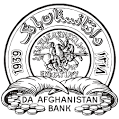


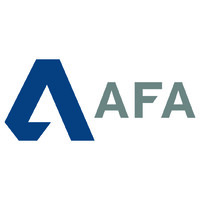
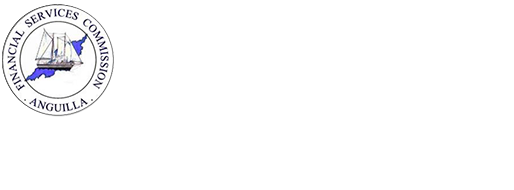

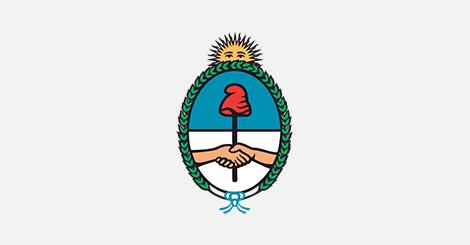
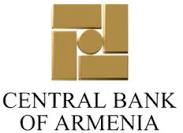



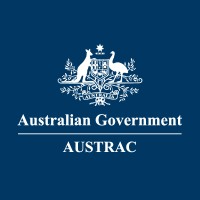




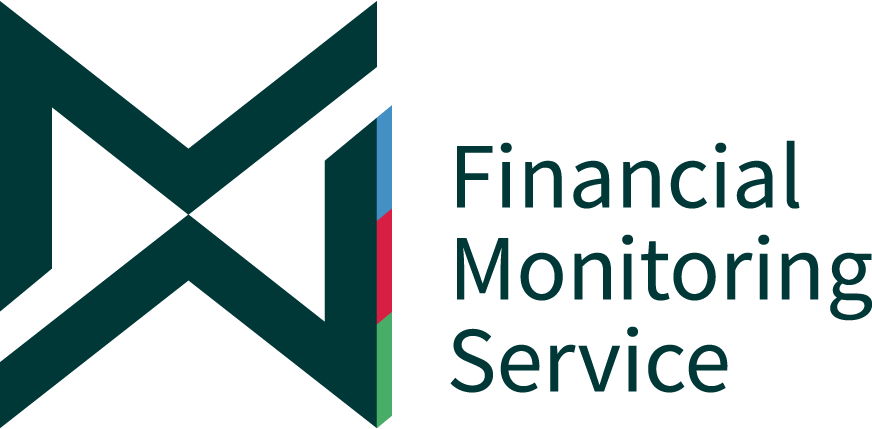

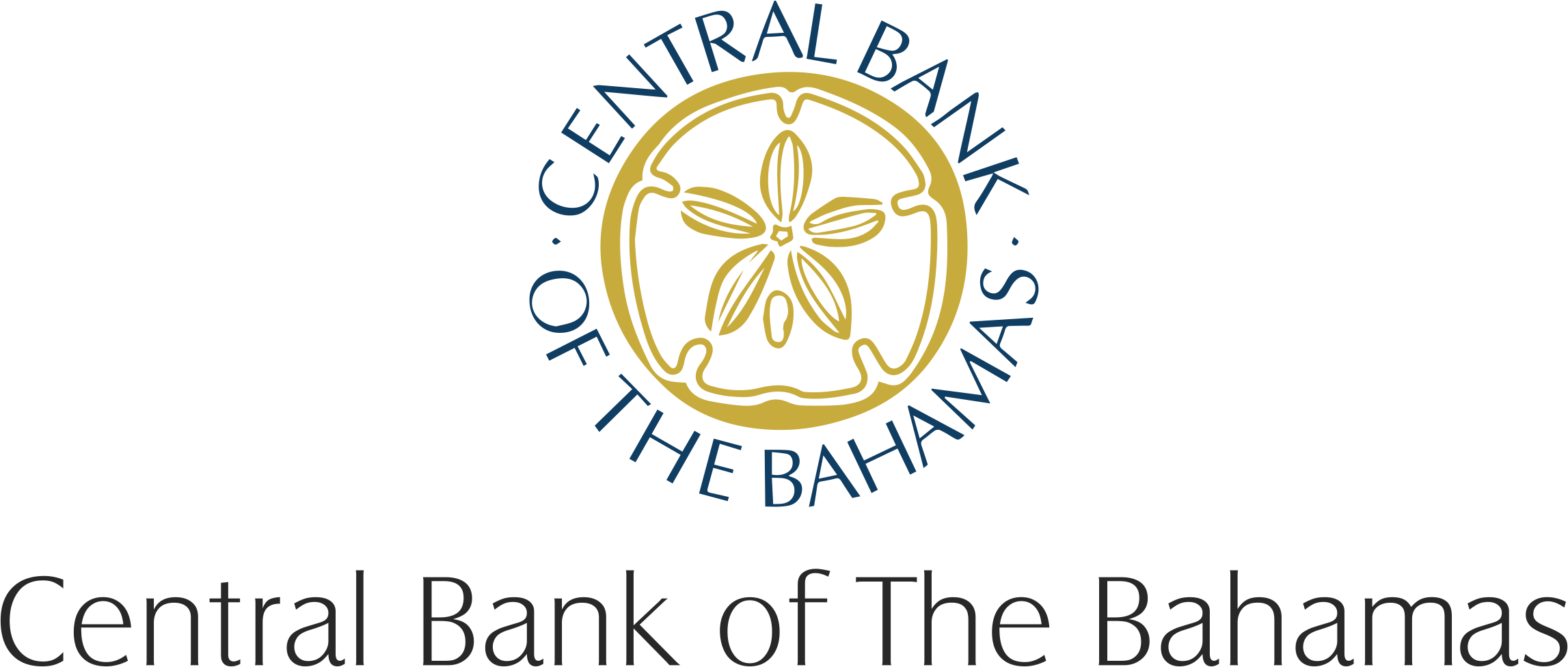
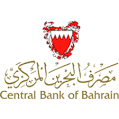

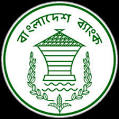




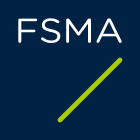

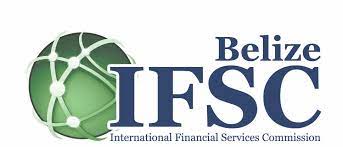
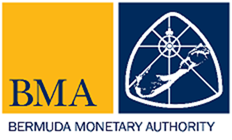
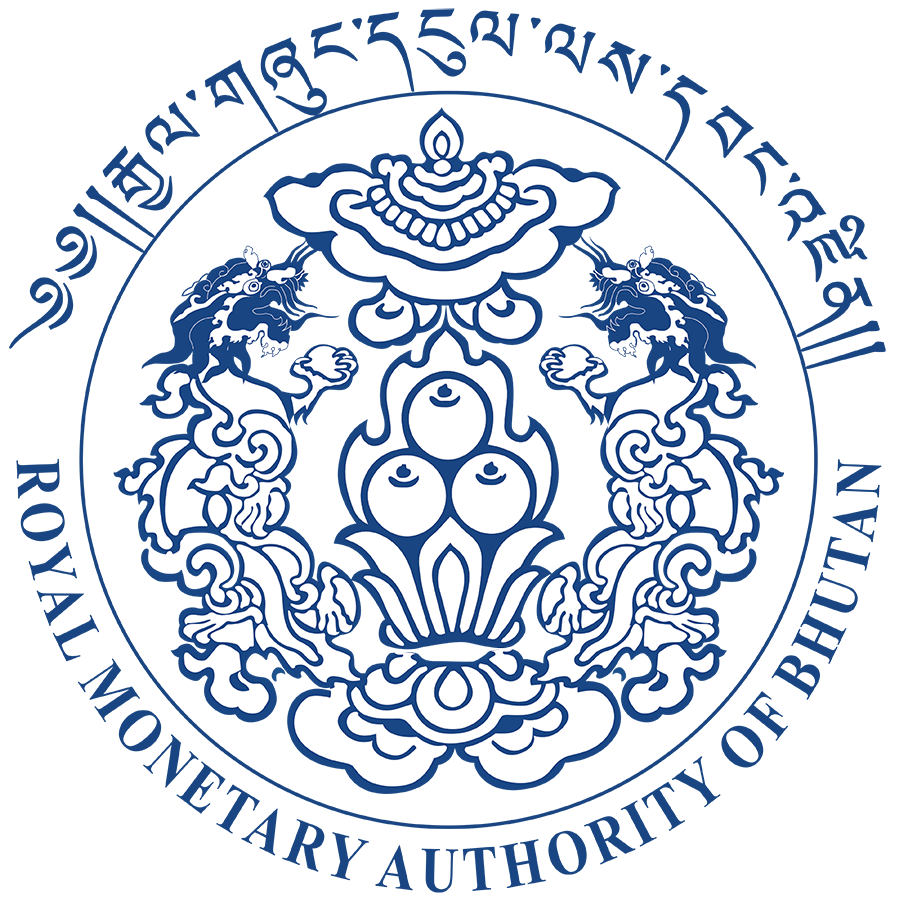
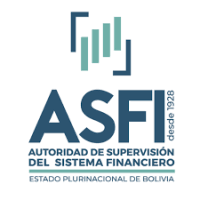






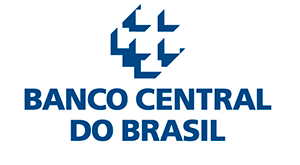

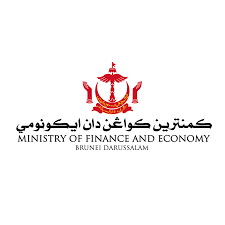





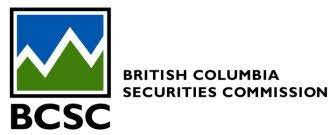

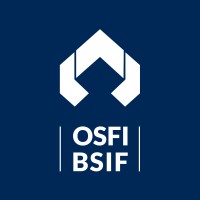
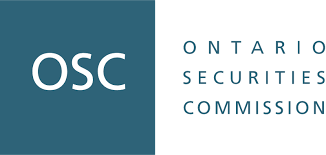
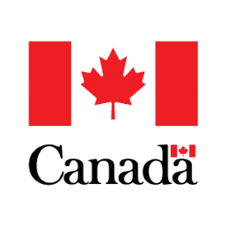



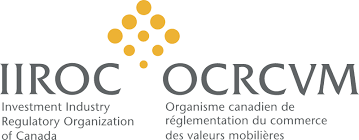

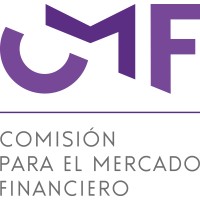



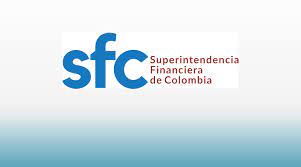




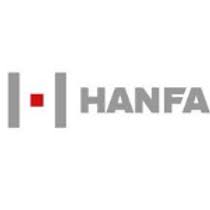
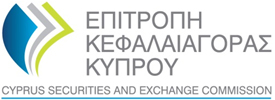


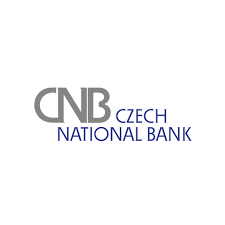






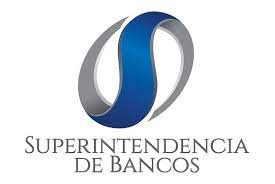
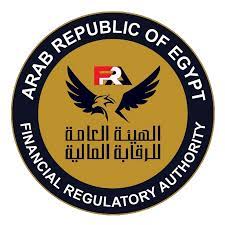
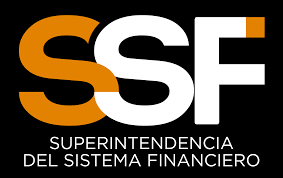
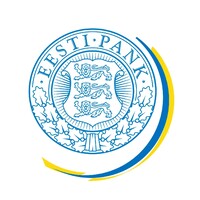


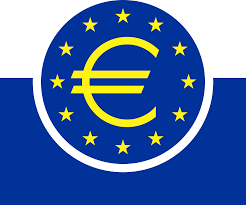





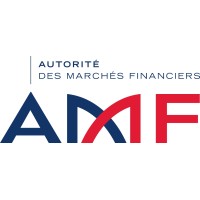
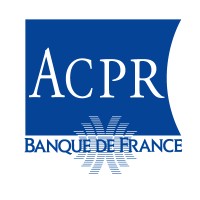



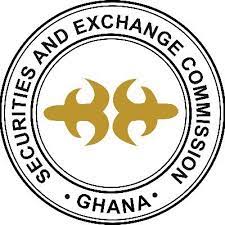





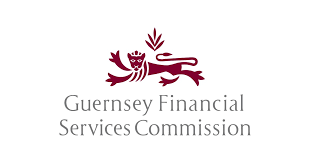

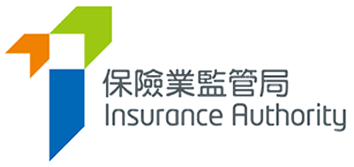


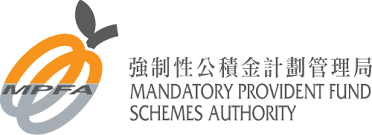
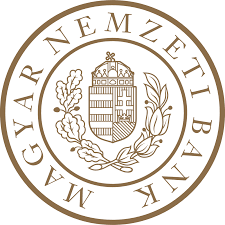
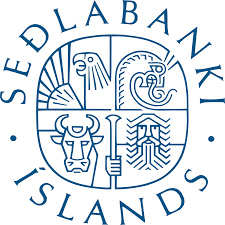
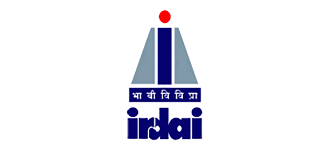
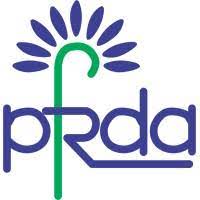
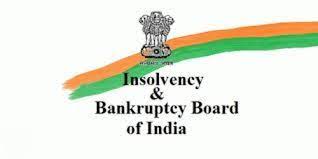
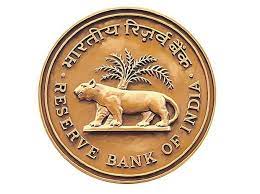



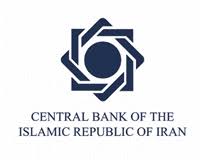
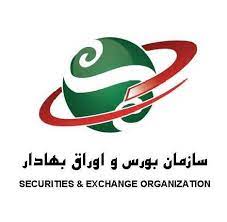

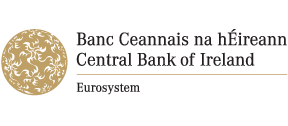






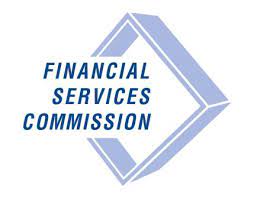


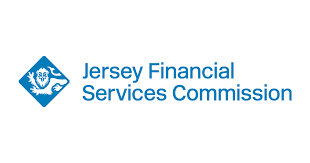




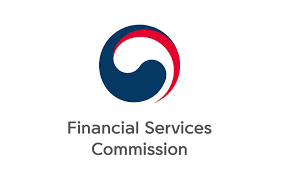
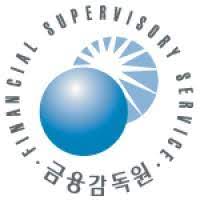





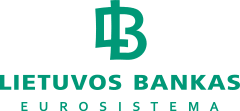

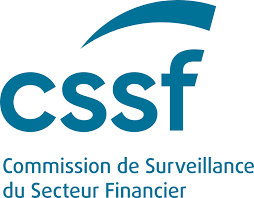

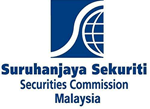
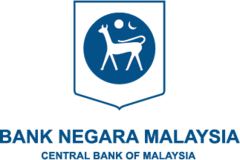
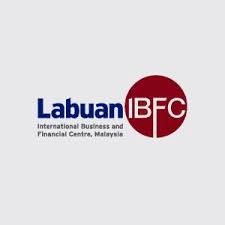


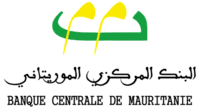
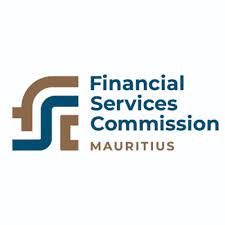

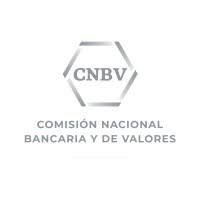

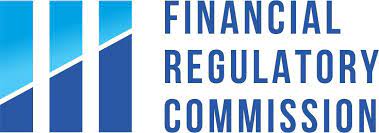








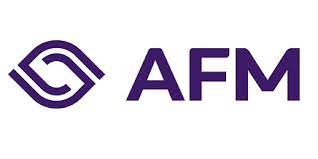


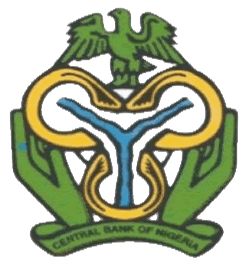





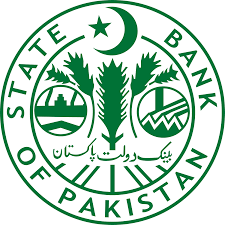






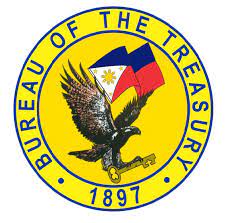


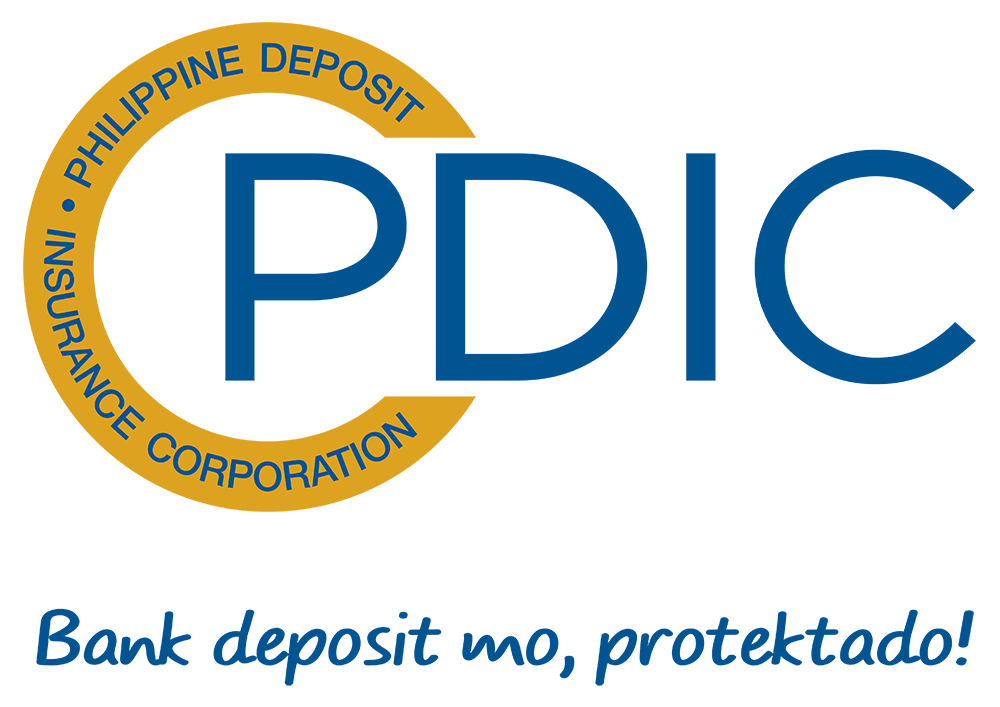



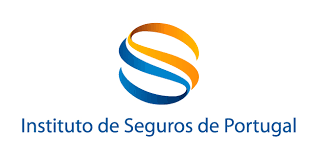
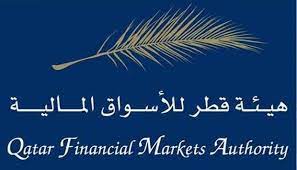

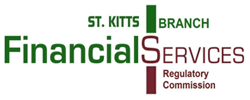

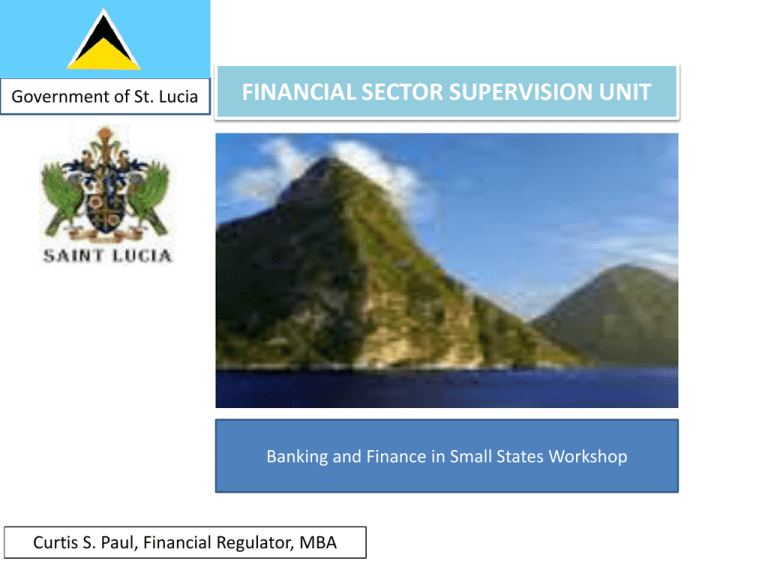






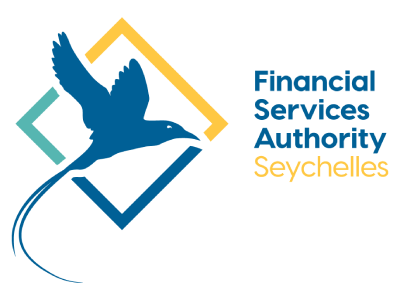
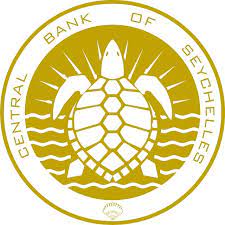
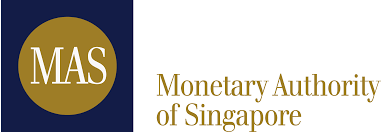


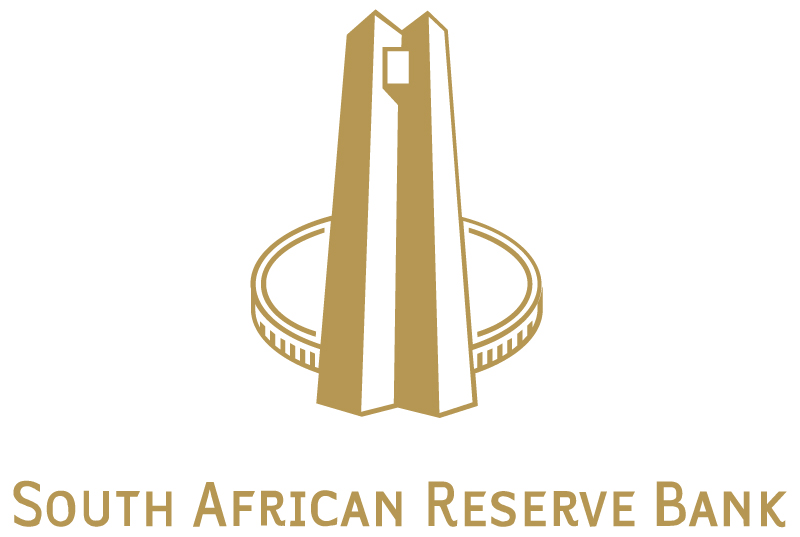

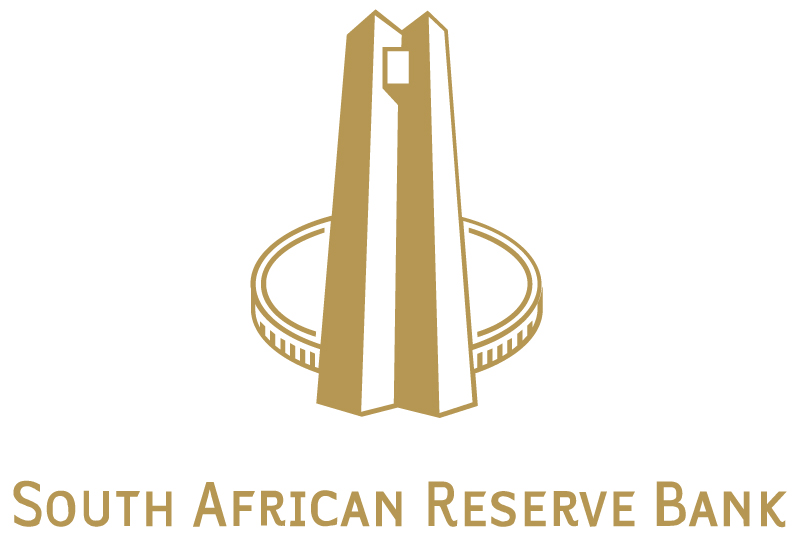

![Investment sector regulator – Spanish Securities Market Commission (Comisión Nacional del Mercado de Valores, CNMV) [MiFID]](https://cyber-forensics.co/wp-content/uploads/2022/07/Investment-sector-regulator-Spanish-Securities-Market-Commission-Comision-Nacional-del-Mercado-de-Valores-CNMV-MiFID.jpg)

![Insurance sector regulator (life and general) – Dirección General de Seguros y Fondos de Pensiones (DGSFP)[IMD]](https://cyber-forensics.co/wp-content/uploads/2022/07/Insurance-sector-regulator-life-and-general-Direccion-General-de-Seguros-y-Fondos-de-Pensiones-DGSFPIMD.png)


